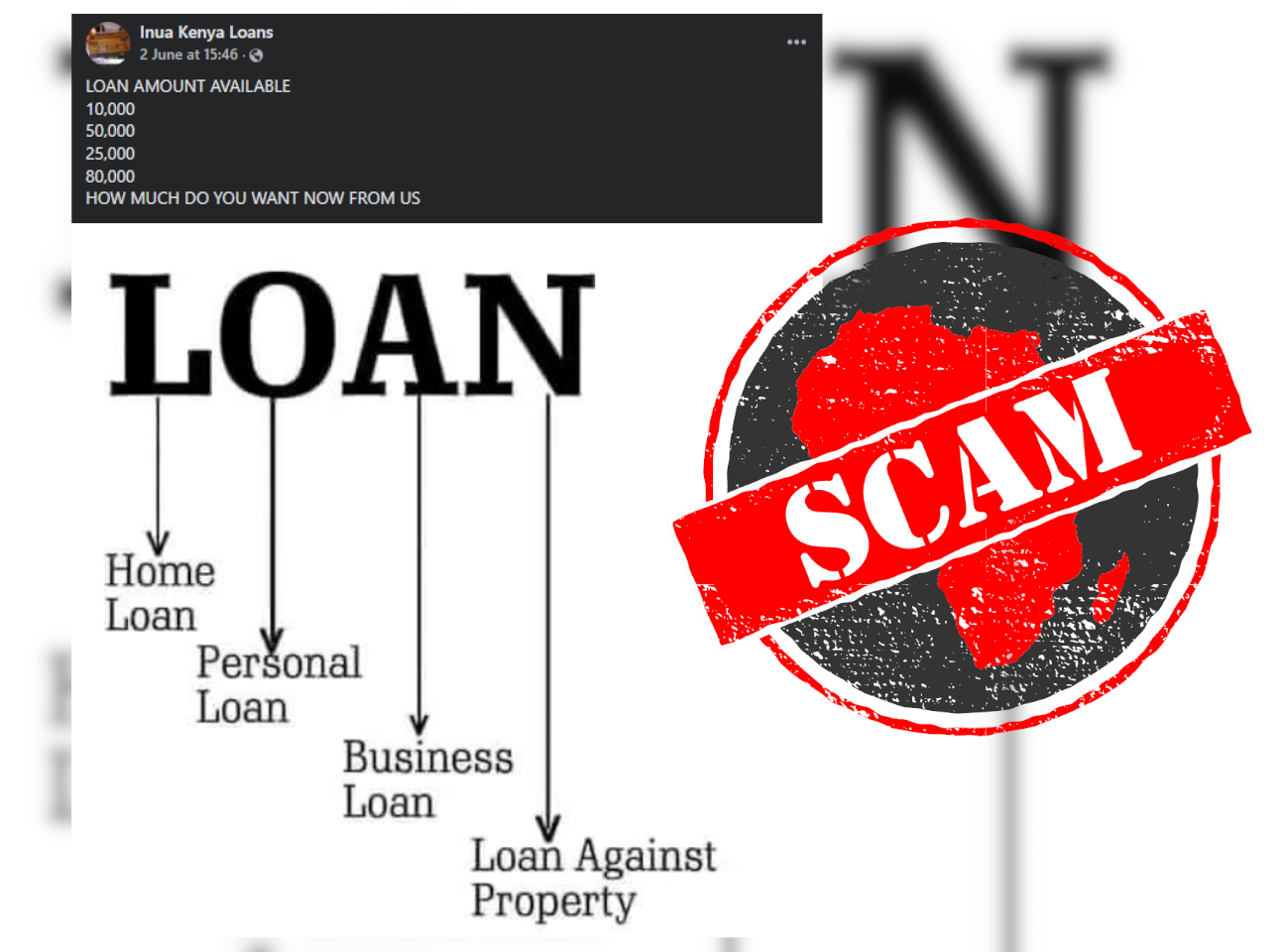IN SHORT: More and more Facebook pages falsely claim to offer loans to people in Kenya. Many even use the name of the government’s Inua Jamii programme, but be careful of these scams.
The Facebook page Inua Kenya Loans is offering mobile loans to Facebook users in Kenya. It claims the loans will be processed within 15 minutes.
In some of its posts, the page claims the loans are from the Inua Jamii, a Kenyan government programme that gives cash grants to poor and vulnerable people. “Inua Jamii” is Kiswahili for “uplift the community”.
It says different types of loans are available, including for home use, personal and business. It only requires users to reach out through a cell phone number provided to access the money.
The page says the loans range from KSh10,000 to KSh80,000. It has also posted what seem to be screenshots showing messages from users who have already received money.
But is the Facebook page and its offers legit? We checked.

Fake Facebook page
There are several clues that the Facebook page and its offers are fake.
The Inua Jamii programme does not issue loans but rather gives out cash grants. No loan offers are posted on the programme’s official Facebook page.
The fake Facebook page’s transparency section shows that it was created on 18 October 2022 under the name “Evangelist pastor Ezekiel-Mombasa”.
Ezekiel Odero is a popular preacher who heads the New Life Prayer Centre and Church, based in Kenya’s southern coastal city of Mombasa.
On 3 May 2023, the page name changed to “Inua Kenya Loans”.
Name changes are a sign that the page is not to be trusted.
We reached out to the cellphone number listed in the ads and were told that a registration fee was required before the loan could be granted. This is another indication of a fake page with scam offers.
Africa Check has in the past flagged many other fake pages offering similar loans.
To help protect yourself against online fraudsters, see Africa Check’s guide to Facebook scams and how to spot them.
Republish our content for free
For publishers: what to do if your post is rated false
A fact-checker has rated your Facebook or Instagram post as “false”, “altered”, “partly false” or “missing context”. This could have serious consequences. What do you do?
Click on our guide for the steps you should follow.
Publishers guideAfrica Check teams up with Facebook
Africa Check is a partner in Meta's third-party fact-checking programme to help stop the spread of false information on social media.
The content we rate as “false” will be downgraded on Facebook and Instagram. This means fewer people will see it.
You can also help identify false information on Facebook. This guide explains how.


Add new comment